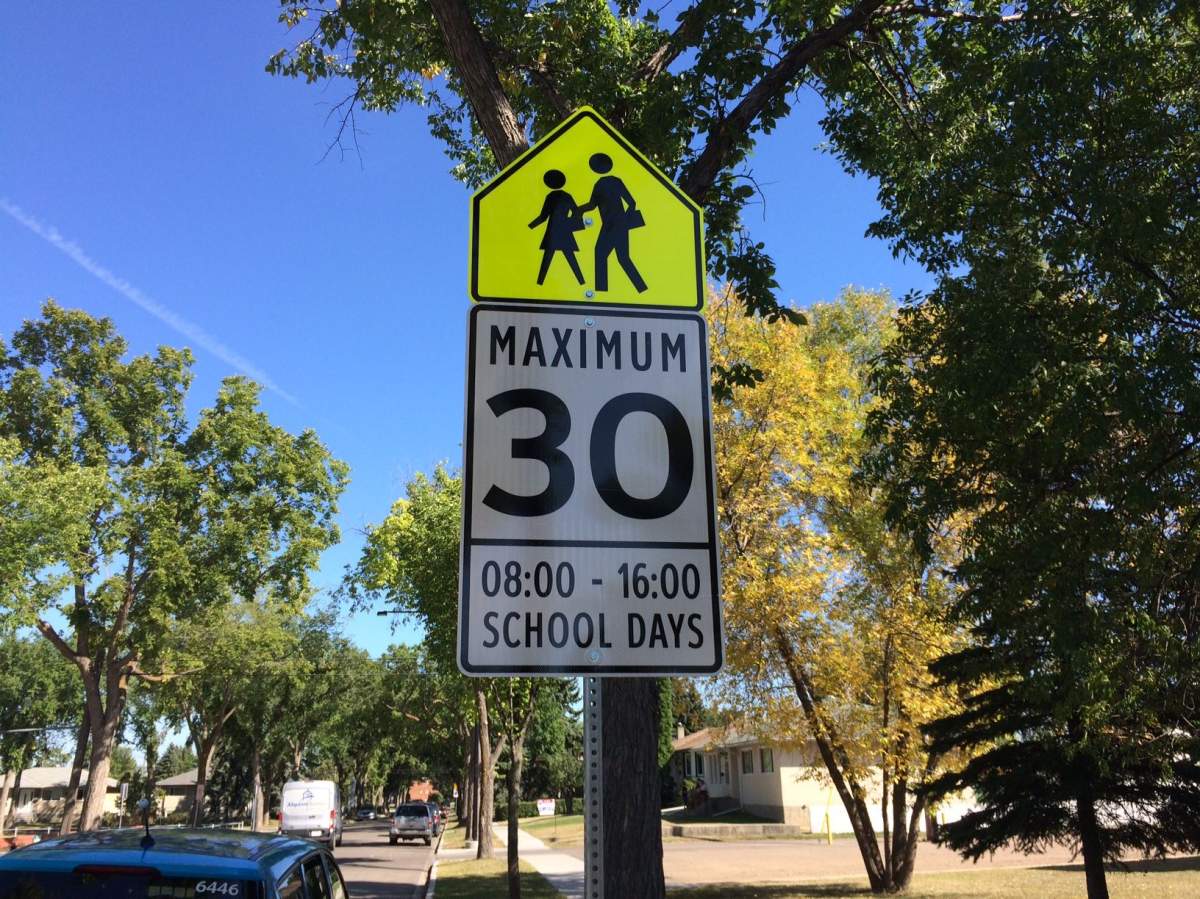The age-old debate of how fast is too fast for neighbourhood roads is about to be answered at Edmonton City Hall.

City councillors will be getting several reports Thursday afternoon ahead of next week’s meeting of the Community and Public Services Committee.
Included will be a recommendation for residential roads, which mostly have speed limits of 50 km/h now, to be reduced to 40 km/h or even 30 km/h.
“It’s timely because a year ago we punted it. But this is bigger than that,” said the committee’s chairperson Councillor Sarah Hamilton. “There’s a few reports coming on traffic safety and road safety.”
They include the annual report from Vision Zero and the Office of Traffic Safety, plus agenda items on photo radar and playground speed limits. The limits for both outside playgrounds and at school zones is 30 km/h.
“The reason they’re coming now is there’s a budget implication to them,” Hamilton said. “So we have to get some reports off the deck before budget so that they can come to council in April.”
City council sets the mill rate, which determines your property tax bill in April.
There is plenty of demand for slower residential speed limits.

Get daily National news
Troy Pavlek led a petition drive after a 2010 city-run pilot project saw six neighbourhoods campaign for 40 km/h speed limits. The result of those six led to mixed results, but Pavlek saw that pilot as an opportunity to bring the same slower speed limit to Hazeldean in southeast Edmonton.
Pavlek, who led that volunteer campaign after city council dealt with the 2010 pilot, said he got 70 per cent support for the initiative, with over 30 per cent of the households in Hazeldean responding. That would have been enough to satisfy the parameters set out by the city.
“I literally went to every single door and then I submitted it to city council,” Pavlek said. “And essentially what was said, and what came out after about a year and a half of back and forth, is that the city does not have a procedure to deal with this.”
He said the two most contentious stretches of road are 96 Street and 66 Avenue. They’re both wider than the rest of what you’d find in the neighbourhood.
The inaction from the city frustrated Pavlek.
“When I sent a petition, they said, ‘We don’t know what to do with this,’ so they did nothing.”
Last April, city council could not reach a consensus on making the default limit 30 or 40 km/h on residential streets. The debate last year led to a lot of confusion on how roads are defined, with local, collector, arterial and residential roads all part of the mix.
Council then asked city staff to come back with clearer definitions.
“There’s a lot of merit to 30 km/h but I think that the best solution is to move forward,” Pavlek told Global News in an interview.
“If 40 is what people can agree on and that’s the compromise that actually gets us progress, then let’s do 40.”
The reports will be released Thursday afternoon, just ahead of a planned news conference.
“I’m looking forward to reading them as much as you are,” Hamilton said.










Comments
Want to discuss? Please read our Commenting Policy first.